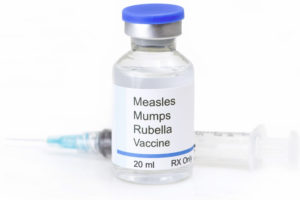The Bacteria Babies Need
A recent articled written by Kristin Lawless that appeared at The New York Times states that scientists at the University of California, Davis, have found that a strain of bacteria called B. infantis that is thought to have been the dominant bacterium in the infant gut for all of human history is disappearing from the Western world. According to their research, this was probably caused by the rise in cesarean births, the overuse of antibiotics and the use of infant formula in place of breast milk.
The article also says that nine out of 10 American babies don’t harbor this bacterium in their gut, while researchers suspect that the majority of infants in less industrialized countries do.
Citing Bruce German, a professor of food science and technology and one of the U.C. Davis researchers, the article also highlights the importance of these micro-organisms in babies’ guts, “The central benefits of having a microbiota dominated by B. infantis is that it crowds all the other guys out” — especially pathogenic bacteria, which can cause both acute illnesses and chronic inflammation that leads to disease.
Studies suggest that by the time babies without B. infantis are children, they are more likely to have allergies and Type 1 diabetes and more likely to be overweight. This change to the infant gut may be at the root of the rising prevalence of diseases and ailments, from allergies to certain cancers.
Dr. German and his colleagues learned about the missing bacterium by studying breast milk. They found that the milk contains an abundance of oligosaccharides, carbohydrates that babies are incapable of digesting. Why would they be there if babies can’t digest them?
They realized that these carbohydrates weren’t feeding the baby — they were feeding B. infantis.
What can new mothers do to ensure that their babies have this beneficial bacterium? At the moment, nothing.
If you live in the industrialized world, you probably can’t pass B. infantis on to your baby. Not even if you give birth vaginally, breast-feed exclusively and eat well.
B. infantis is not the only endangered bacterium in the West, and babies aren’t the only ones affected. By studying mice, researchers at Stanford have found that a lack of dietary fiber — which is missing from most processed foods — results in the loss of important bacterial strains.
Read more at: NYTimes




